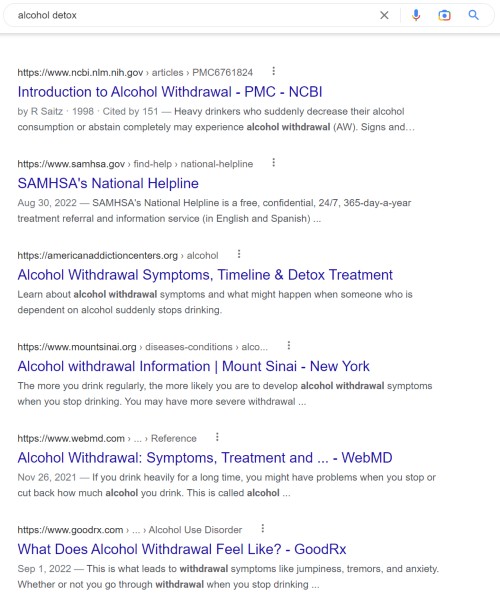This guide will provide you with a comprehensive overview of keyword research and how to use it to optimize your content for SEO in a way that resonates with your target audience.
The Ultimate Guide to Keyword Research for SEO
Keyword research is an essential part of SEO (Search Engine Optimization). It helps you to identify the most relevant and popular keywords that people are searching for online. By understanding what people are searching for, you can create content that is more likely to be seen by your target audience.
This guide will provide you with a comprehensive overview of keyword research and how to use it to optimize your content for SEO that resonates with your target audience.

The Definitive Guide to Keyword Research for SEO
Knowing what keywords to target, how to optimize for them, and how to track their performance is essential for any SEO campaign. By the end of this guide, you’ll have a comprehensive understanding of keyword research that will help you get the most out of your SEO efforts.
What is Keyword Research and Why it is Critical for SEO
Keyword research is the process of identifying and analyzing keywords that are relevant to a website or business. It can help you optimize your content for search engine optimization (SEO) purposes, as well as understand how people use language to search for information online.
By researching target keywords, you can gain insights into how people search and what words they use to find the content they are looking for. This knowledge can then be used to create content that is more likely to be found by potential customers. Keyword research is critical for SEO because it helps you focus your efforts on optimizing content with the right words so that it appears higher in search engine results pages (SERPs).
Not only is keyword research important for ranking, but it provides us guidance on what your target audience is looking for (ie – the search intent). Keyword research can help identify alternate terms and gaps in content (related services or informational articles) that can increase brand awareness, traffic and more targeted leads to your business.
How to Find Keywords for Your Website
Finding the right keywords for your website is essential for SEO success. Knowing which keywords to target can help you get more traffic and leads from search engine results pages. Keywords are words or phrases that people type into search engines when looking for information or services related to your business.
When searching for keywords, it’s important to consider the relevance of each keyword to your website’s content and the competition level of each keyword. You should also take into account the intent behind each keyword and how it relates to what you offer on your website. By doing so, you can ensure that you are targeting the right keywords that will bring in more visitors and potential customers.
Using Keyword Research Tools
By using keyword research tools, you can identify the most relevant keywords that will help you reach more people and increase conversions.
These tools help you analyze search engine data to identify which words and phrases are most commonly used by your target audience when searching for products or services related to your business. With the right keywords, you can optimize your content for search engines and improve your chances of appearing in the top results.
You can use keyword research tools such as Ahrefs, SEMrush and Google Search Console to see what keywords your website currently ranks for.
How you can use keyword research tools:
- See what your pages currently rank for.
- Determine what pages are close to ranking and improve on SEO tags (titles and meta descriptions) to push them higher into SERPs (search engine results pages).
- Find alternate keywords (perhaps your potential customers find you through less-technical industry jargon than you think).
- Find location-based terms.
- Come up with topic ideas or new service pages.
- Verify search intent.
- Gather a broad list of terms you can or should consider for targeting.
Other keyword research tools you can explore are Google’s Keyword Planner and Google Trends.
Effective Techniques to Analyze and Evaluate Competitor’s Keyword Strategies
Do you really need to analyze your competitor’s keywords?
This is mission critical if you want to show up in the same SERPs along with your competitors!
Analyzing and evaluating competitor’s keyword strategies is critical in understanding what keywords are working for your competitors and using those insights to improve your own campaigns.
Keyword analysis tools such as SEMrush, SpyFu, Ahrefs, and Moz’s Keyword Explorer provide marketers with the necessary data to conduct effective competitor analysis. These tools allow marketers to track competitor’s keyword rankings, analyze their backlinks, and compare search volumes for different keywords. They also provide valuable insights into how competitors are optimizing their content for search engines.
It’s important to note, however, that keyword research and the use of keywords isn’t a one-size-fits-all strategy to ensure ranking!
If you’ve got a new website or one that hasn’t invested time in building your online presence, reviewing competitiveness will be key in making decisions about which keywords to target (more on this later).
How to Choose the Right Target Keywords and Phrases That Will Drive Traffic
Choosing the right keywords and phrases to target is essential to helping your content be seen by potential customers. To do this, you need to use keyword research tools that can help you find the best keywords for your website or blog.
These tools are great for finding a variety of short- and long-tail keywords for your website. (Long-tail keywords are more specific than general terms and can help you drive more targeted traffic to your website or blog.) Additionally, these tools can also provide insights into what kind of content is performing well in your industry so you can create content tailored to those topics.
The best tips for choosing the right keywords are:
- Utilize keywords (or phrases) that your customer uses and steer clear of confusing industry jargon.
- Analyze your competitors’ keywords and choose those that make sense for your website.
- Review keyword intent and target keywords to the right pages on your website (informational terms belong to blogs, articles, videos while transactional keywords should be on product or service pages).
- Choose keywords your website has a chance to rank for. A new local rehab clinic probably won’t rank for the term “signs of addiction” but could stand a better chance ranking for local content like “opioid addiction statistics Connecticut.” When reviewing a keyword, it’s recommended to check the 1st page of the search results to determine who’s currently ranking and decide if your website is authoritative enough to compete.
- Don’t dismiss low search volume terms! Sometimes keywords (especially long-tail keywords) display an estimate of low search volume, but when coupled with similar, relevant terms, can bring in more traffic than expected and are sometimes easier to rank for.
We can hear you now …
“But I want to rank for ‘alcohol detox’!”
And yes, we want you to rank for a broad, high search volume keyword like this too, but we do have to be realistic. Can your website compete against big players like WebMD and GoodRx?

If your website is still young, it’s not likely. So our best tip is to rank for lower search volume terms, especially utilizing localized terms if you’re a local business. The more pages you can get ranked locally in the beginning, the better chance you have to rank as your site ages and builds authority.
Optimize Content for Keywords
Content optimization involves optimizing the content for your previously chosen keywords and phrases so that it can rank higher in search engine results pages (SERPs), drive more traffic, and increase your online visibility.
Content optimization also helps you improve user experience by providing relevant information and making it easier for users to find what they’re looking for. By using the right keywords, you can make sure that your content is more likely to be found by potential, better qualified customers and leads.
Once you’ve determined your target keyword, optimizing your content involves:
- Utilizing the keywords in SEO tags (titles and meta descriptions).
- Using the actual keyword and alternate (similar) keywords within the content – but do not keyword stuff.
- Writing in such a way that is relevant, engaging and useful to your target audience – don’t forget that writing conversationally will also help to optimize for voice search.
- Utilizing keywords in URLs – but keep them short and SEO friendly.
What Next?
Keyword research is the heart of an effective search engine optimization campaign and, depending on the size and age of your website, can take time to narrow down the right keywords.
Keep reading for more insights into keyword research:
- Keyword Research for SEO: The Definitive Guide (this post)
- Why Keyword Research is Important
- How to Find Keywords for Your Website
- How to Choose the Best Keywords for Your Site
- How to Optimize Your Website Copy for Keywords
Too busy to get into the weeds? Contact us to find out how our team can help you.
Contact GYBO

Passionate digital marketing expert with over 10 years of experience. Broad, hands-on marketing skillset, from web developer, SEO, PPC, Data Analytics & Tracking.
